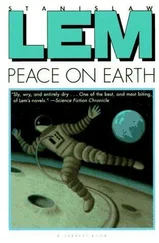Therefore, I cannot claim to offer anything other than the notions of myself that I have formed over the space of roughly forty years, and their only singularity, it seems to me, is that they are not flattering. Nor is this uncomplimentariness limited to “the pulling off of the mask,” which is the only trick available to the psychoanalyst. To say, for example, of a genius that morally he was a bastard may not necessarily hit him in the place of his private shame. A mind that “reached the ceiling of the age,” as Yowitt puts it, will not be bothered by that type of diagnosis. The shame of a genius may be his intellectual futility, the knowledge of how uncertain is all that he has accomplished. And genius is, above all, constant doubting. Not one of the greats, however, bent beneath the pressure of society, has pulled down the monuments raised to him in his life, calling himself thereby into question.
As one whose genius has been duly certified by several dozen learned biographers, I think I may say a word or two on the topic of intellectual summits; which is simply that clarity of thought is a shining point in a vast expanse of unrelieved darkness. Genius is not so much a light as it is a constant awareness of the surrounding gloom, and its typical cowardice is to bathe in its own glow and avoid, as much as possible, looking out beyond its boundary. No matter how much genuine strength it may contain, there is also, inevitably, a considerable part that is only the pretense of that strength.
The fundamental traits of my character I consider to be cowardice, malice, and pride. As it turned out, this triumvirate had at its disposal a certain talent, which concealed it and ostensibly transformed it, and intelligence assisted in this — intelligence is one of life’s most effective instruments for masking inborn traits, once it decides that such a course is desirable. For forty-odd years I have been an obliging, modest individual, devoid of any sign of professional arrogance, because for a very long time and most persistently I schooled myself in precisely this behavior. But as far back into childhood as I can recall, I sought out evil, though of course I was unaware of it.
My evil was isotropic, unbiased, and totally disinterested. In places of veneration, such as churches, or in the company of particularly worthy persons, I liked to think forbidden thoughts. That the content of these thoughts was ludicrously puerile does not matter in the least. I was simply conducting experiments on a scale practically accessible to me. I do not remember when I began these experiments. I remember only the deep sense of injury, the anger, and the disappointment that came upon me some years later, when it turned out that a head filled with wickedness would never, not in any place nor in any company, be struck by lightning; that breaking free of and not participating in the Proper brought with it no — absolutely no — punishment.
If it is at all possible to speak thus of a child of less than ten, I wanted that lightning or some other form of dire retribution; I summoned it, challenged it, and grew to despise the world, the place of my existence, because it had demonstrated the futility of all action and thought, evil included. Thus I never tormented animals, or hurt even the grass underfoot; on the other hand, I lashed out at stones, the sand, I abused furniture, subjected water to torture, and mentally smashed the stars to pieces, to punish them for their indifference to me, and as I did so my fury became more and more helpless, for my understanding increased, of how ridiculous were the things I did.
Somewhat later on, with self-knowledge, I came to the realization that my condition was a kind of keen unhappiness that was utterly useless to me, because it could serve no purpose. I said before that my rancor was unbiased: I bestowed it first upon myself. The shape of my arms, of my legs, the features of my face, seen in the mirror, galled me in a way in which usually only the features of others cause us anger or impatience. When I grew a bit older, I saw that it was impossible to live like this; I determined, through a progression of decisions, exactly what I ought to be, and from then on strove — true, with variable results — to adhere to that established plan.
An autobiography that begins by listing cowardice, malice, and pride as the foundations of one’s psyche entails, from the deterministic point of view, a logical error. If one says that everything in us is predetermined, then predetermined also must have been my resistance to my inner meanness, and the difference between me and other, better people is then reduced to nothing but a variation in the localized source of the behavior. What those better people did voluntarily, at little cost, for they but followed their own natural inclination, I practiced in opposition to mine — hence, as it were, artificially. Yet since it was I who dictated conduct to myself, I was, in the overall balance — in this formulation — nevertheless predestined to be as good as gold. Like Demosthenes with the pebbles in his stammering mouth, I put iron deep in my soul, to straighten it.
But it is precisely in this equalizing that determinism reveals its absurdity. A phonograph record of angelic singing is not an iota better morally than one that reproduces, when played, a scream of murder. According to determinism, he who desired and was able to be better was no more or less fated beforehand than he who desired but was unable, or than he who did not even attempt to desire. This is a false image, for the sound of battle played on a record is not an actual battle. Knowing what it cost me, I can say that my struggle to be good was no semblance. Determinism simply deals with something altogether different; the forces that operate according to the calculus of physics have nothing whatever to do with the matter — just as a crime is not made innocent by its translation into the language of amplitudes of atomic probabilities.
About one thing Yowitt is definitely right: I always sought difficulty. Opportunities for me to give free rein to my natural malice I usually forwent, as too easy. It may sound strange, or even nonsensical, but I did not suppress my inclination to evil with my eyes fixed on the Good as a higher value; rather, I suppressed it for the precise reason that I felt so powerfully its presence in me. What counted for me was the calculus of resistance, which had nothing in common with the arithmetic of morality. Therefore I really cannot say what would have become of me had the principal trait of my nature been the inclination to do only good. As usual, reasoning that attempts to picture ourselves in a form other than what is given breaks the rules of logic and must quickly founder.
Once only did I not eschew evil; that memory is connected with the protracted and horrible death of my mother. I loved her, yet at the same time I followed with an unusually keen and avid attention the process of her destruction in the illness. I was nine then. She, the personification of tranquillity, of strength, of a composure almost sovereign, lay in a lingering agony, an agony prolonged by the doctors. I, at her side in the darkened bedroom filled with the stink of medicine, still kept a grip on myself; but when I left her, as soon as I had shut the door behind me and found myself alone, I stuck out my tongue joyfully in the direction of her bed, and, that being insufficient, ran to my room and breathlessly jumped up and down in front of the mirror, fists clenched, making faces and giggling with delight. With delight? I understood perfectly that my mother was dying; since that morning I had fallen into despair, and the despair was as real as my stifled giggling. I remember how the giggling frightened me, yet at the same time it took me beyond everything I had known, and in that transgression there was a dazzling revelation.
Читать дальше












